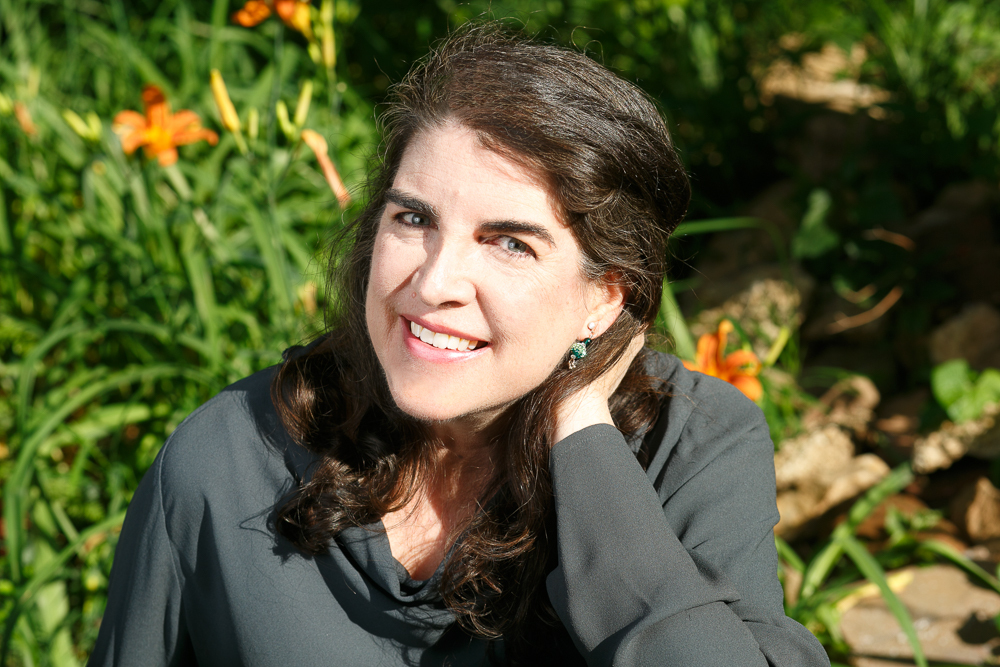Natural Asset Companies (NACs): A New Type of Sustainable Investment
The NYSE is launching natural asset companies (NACs) - a new asset class that will assign value to natural services such as clean water.


Profit and prosper with the best of Kiplinger's advice on investing, taxes, retirement, personal finance and much more. Delivered daily. Enter your email in the box and click Sign Me Up.
You are now subscribed
Your newsletter sign-up was successful
Want to add more newsletters?

Delivered daily
Kiplinger Today
Profit and prosper with the best of Kiplinger's advice on investing, taxes, retirement, personal finance and much more delivered daily. Smart money moves start here.

Sent five days a week
Kiplinger A Step Ahead
Get practical help to make better financial decisions in your everyday life, from spending to savings on top deals.

Delivered daily
Kiplinger Closing Bell
Get today's biggest financial and investing headlines delivered to your inbox every day the U.S. stock market is open.

Sent twice a week
Kiplinger Adviser Intel
Financial pros across the country share best practices and fresh tactics to preserve and grow your wealth.

Delivered weekly
Kiplinger Tax Tips
Trim your federal and state tax bills with practical tax-planning and tax-cutting strategies.

Sent twice a week
Kiplinger Retirement Tips
Your twice-a-week guide to planning and enjoying a financially secure and richly rewarding retirement

Sent bimonthly.
Kiplinger Adviser Angle
Insights for advisers, wealth managers and other financial professionals.

Sent twice a week
Kiplinger Investing Weekly
Your twice-a-week roundup of promising stocks, funds, companies and industries you should consider, ones you should avoid, and why.

Sent weekly for six weeks
Kiplinger Invest for Retirement
Your step-by-step six-part series on how to invest for retirement, from devising a successful strategy to exactly which investments to choose.
2024 Update: The New York Stock Exchange (NYSE) no longer plans to launch Natural Asset Class (NAC) tradable assets, according to an SEC filing.
The New York Stock Exchange (NYSE) is launching a new type of asset class that could transform the way investors value nature.
Called natural asset companies (NACs), these securities will be listed and traded on the NYSE, just like traditional stocks. The exchange plans to list these entities starting later this fall. The launch comes just as companies and governments are preparing to make substantial commitments to combating climate change at the next U.N. global climate meeting in November.
From just $107.88 $24.99 for Kiplinger Personal Finance
Become a smarter, better informed investor. Subscribe from just $107.88 $24.99, plus get up to 4 Special Issues

Sign up for Kiplinger’s Free Newsletters
Profit and prosper with the best of expert advice on investing, taxes, retirement, personal finance and more - straight to your e-mail.
Profit and prosper with the best of expert advice - straight to your e-mail.
Here's the skinny on this new investment class geared toward ESG (environmental, social and governance) investors.
What Are NACs?
Natural asset companies assign value to the services provided by nature (such as storing carbon in a forest), rather than to the extraction of natural resources (such as logging).
NACs will hold the rights to "ecosystem services," or the benefits people receive from nature, such as food, pollination, tourism, or clean water; such global benefits are valued at an estimated $125 trillion annually.
Each NAC will issue an IPO tied to a specific tangible asset, such as a rainforest, a marine ecosystem or farmland. The proceeds will be used to manage the property to enhance ecosystem services – or in the case of farmland, to convert it to sustainable, "regenerative" agriculture. (Regenerative ag actually builds soil, stores carbon, and increases biodiversity.)
How Are They Valued?
The NYSE is working with, and has a minority stake in, the Intrinsic Exchange Group (IEG). The IEG has several years of experience tackling challenges to the NAC model, such as how natural value should be measured, monitored and translated into financial value.
The IEG, with the help of the Inter-American Development Bank (IDB), has developed an accounting framework based on projects conducted throughout Latin America. The NYSE will license the IEG's accounting framework.
"We believe it is absolutely critical to provide investors in Natural Asset Companies with relevant, reliable and understandable information on the flows of the ecosystem services they produce and their stocks of natural capital assets," Robert Herz, former chairman of the Financial Accounting Standards Board (FASB), says in a statement.
Bottom Line
One of the biggest challenges to addressing climate change has been a lack of funding for conservation, biodiversity, and other climate strategies tied to natural value. If natural asset companies are scalable and earn the confidence of investors and stakeholders, they could help ramp up investments in climate solutions.
More comprehensive climate policy in the U.S. and abroad also could make NACs attractive long-term investments. Not to mention, they provide another way investors can diversify their portfolios.
Investors interested in ESG should keep an eye out for natural asset companies in the next few months. You might just be able to help keep a forest standing as you feather your nest.
Profit and prosper with the best of Kiplinger's advice on investing, taxes, retirement, personal finance and much more. Delivered daily. Enter your email in the box and click Sign Me Up.

Ellen writes and edits retirement stories. She joined Kiplinger in 2021 as an investment and personal finance writer, focusing on retirement, credit cards and related topics. She worked in the mutual fund industry for 15 years as a manager and sustainability analyst at Calvert Investments. She earned a master’s from U.C. Berkeley in international relations and Latin America and a B.A. from Haverford College.
-
 Ask the Tax Editor: Federal Income Tax Deductions
Ask the Tax Editor: Federal Income Tax DeductionsAsk the Editor In this week's Ask the Editor Q&A, Joy Taylor answers questions on federal income tax deductions
-
 States With No-Fault Car Insurance Laws (and How No-Fault Car Insurance Works)
States With No-Fault Car Insurance Laws (and How No-Fault Car Insurance Works)A breakdown of the confusing rules around no-fault car insurance in every state where it exists.
-
 7 Frugal Habits to Keep Even When You're Rich
7 Frugal Habits to Keep Even When You're RichSome frugal habits are worth it, no matter what tax bracket you're in.
-
 If You'd Put $1,000 Into AMD Stock 20 Years Ago, Here's What You'd Have Today
If You'd Put $1,000 Into AMD Stock 20 Years Ago, Here's What You'd Have TodayAdvanced Micro Devices stock is soaring thanks to AI, but as a buy-and-hold bet, it's been a market laggard.
-
 If You'd Put $1,000 Into UPS Stock 20 Years Ago, Here's What You'd Have Today
If You'd Put $1,000 Into UPS Stock 20 Years Ago, Here's What You'd Have TodayUnited Parcel Service stock has been a massive long-term laggard.
-
 If You'd Put $1,000 Into Lowe's Stock 20 Years Ago, Here's What You'd Have Today
If You'd Put $1,000 Into Lowe's Stock 20 Years Ago, Here's What You'd Have TodayLowe's stock has delivered disappointing returns recently, but it's been a great holding for truly patient investors.
-
 If You'd Put $1,000 Into 3M Stock 20 Years Ago, Here's What You'd Have Today
If You'd Put $1,000 Into 3M Stock 20 Years Ago, Here's What You'd Have TodayMMM stock has been a pit of despair for truly long-term shareholders.
-
 If You'd Put $1,000 Into Coca-Cola Stock 20 Years Ago, Here's What You'd Have Today
If You'd Put $1,000 Into Coca-Cola Stock 20 Years Ago, Here's What You'd Have TodayEven with its reliable dividend growth and generous stock buybacks, Coca-Cola has underperformed the broad market in the long term.
-
 If You Put $1,000 into Qualcomm Stock 20 Years Ago, Here's What You Would Have Today
If You Put $1,000 into Qualcomm Stock 20 Years Ago, Here's What You Would Have TodayQualcomm stock has been a big disappointment for truly long-term investors.
-
 If You'd Put $1,000 Into Home Depot Stock 20 Years Ago, Here's What You'd Have Today
If You'd Put $1,000 Into Home Depot Stock 20 Years Ago, Here's What You'd Have TodayHome Depot stock has been a buy-and-hold banger for truly long-term investors.
-
 If You'd Put $1,000 Into Bank of America Stock 20 Years Ago, Here's What You'd Have Today
If You'd Put $1,000 Into Bank of America Stock 20 Years Ago, Here's What You'd Have TodayBank of America stock has been a massive buy-and-hold bust.